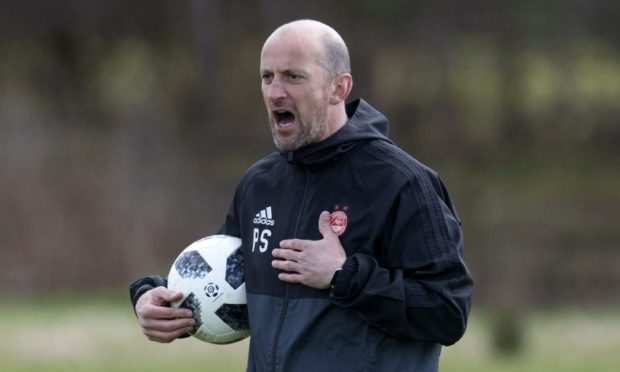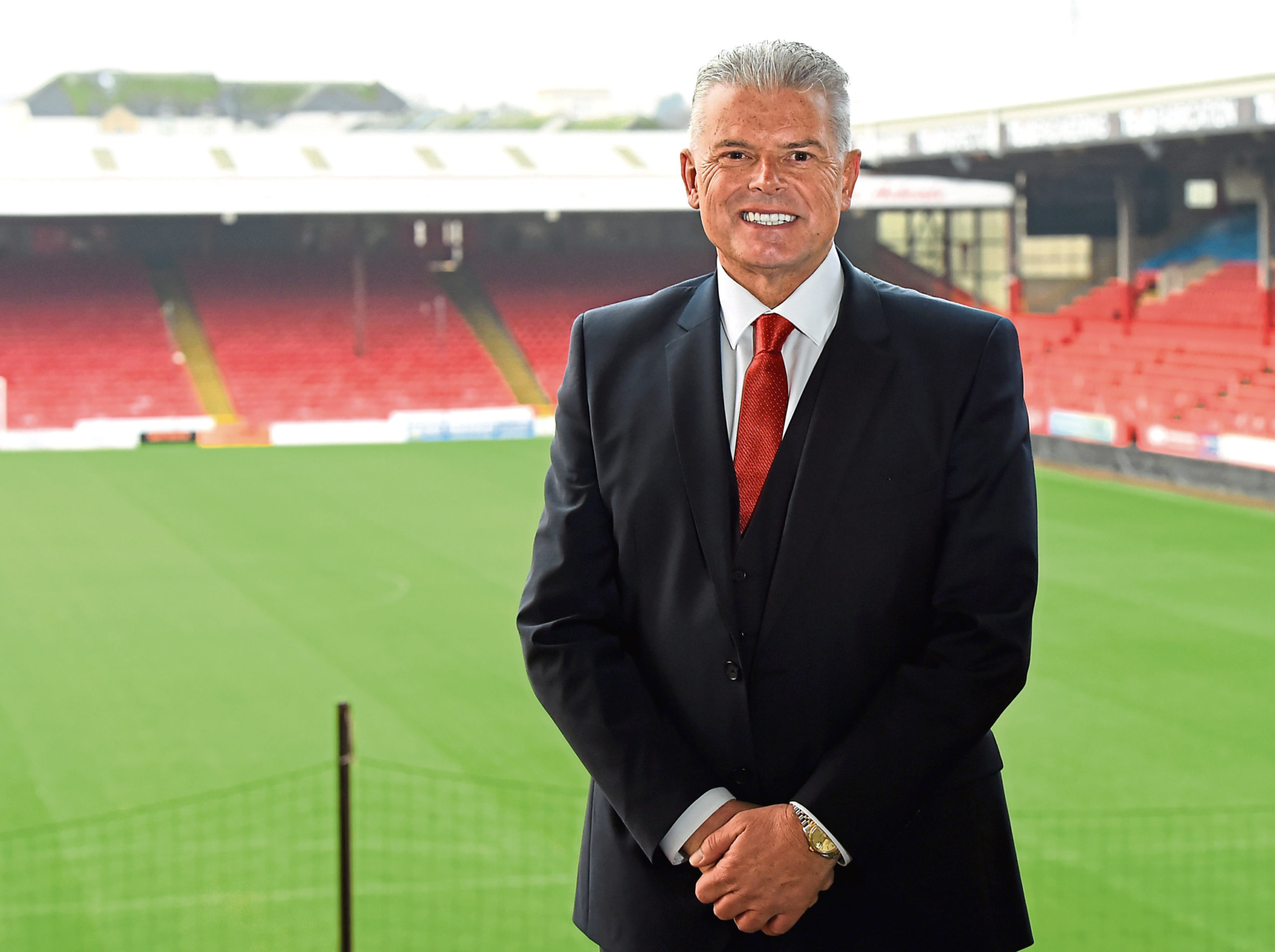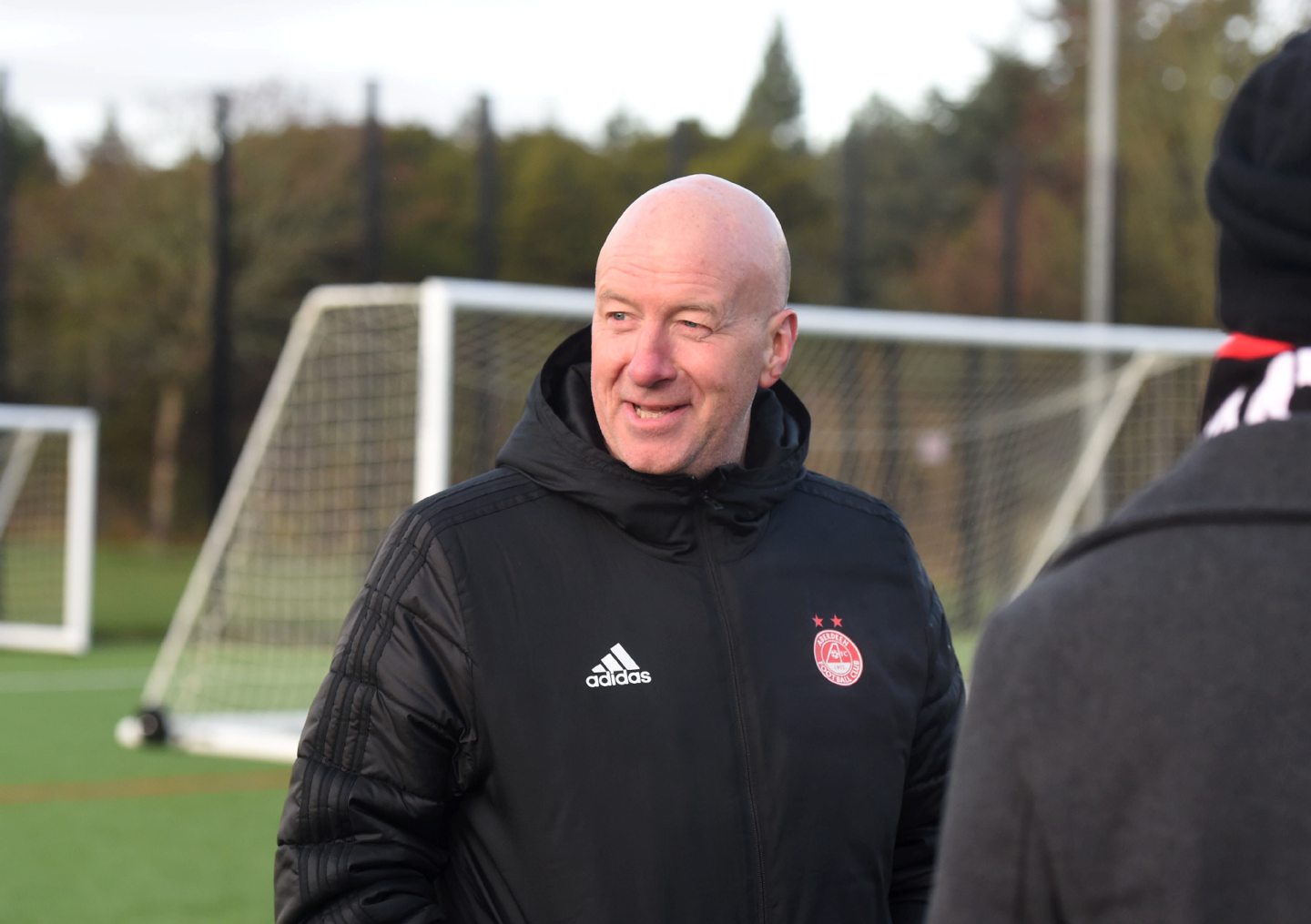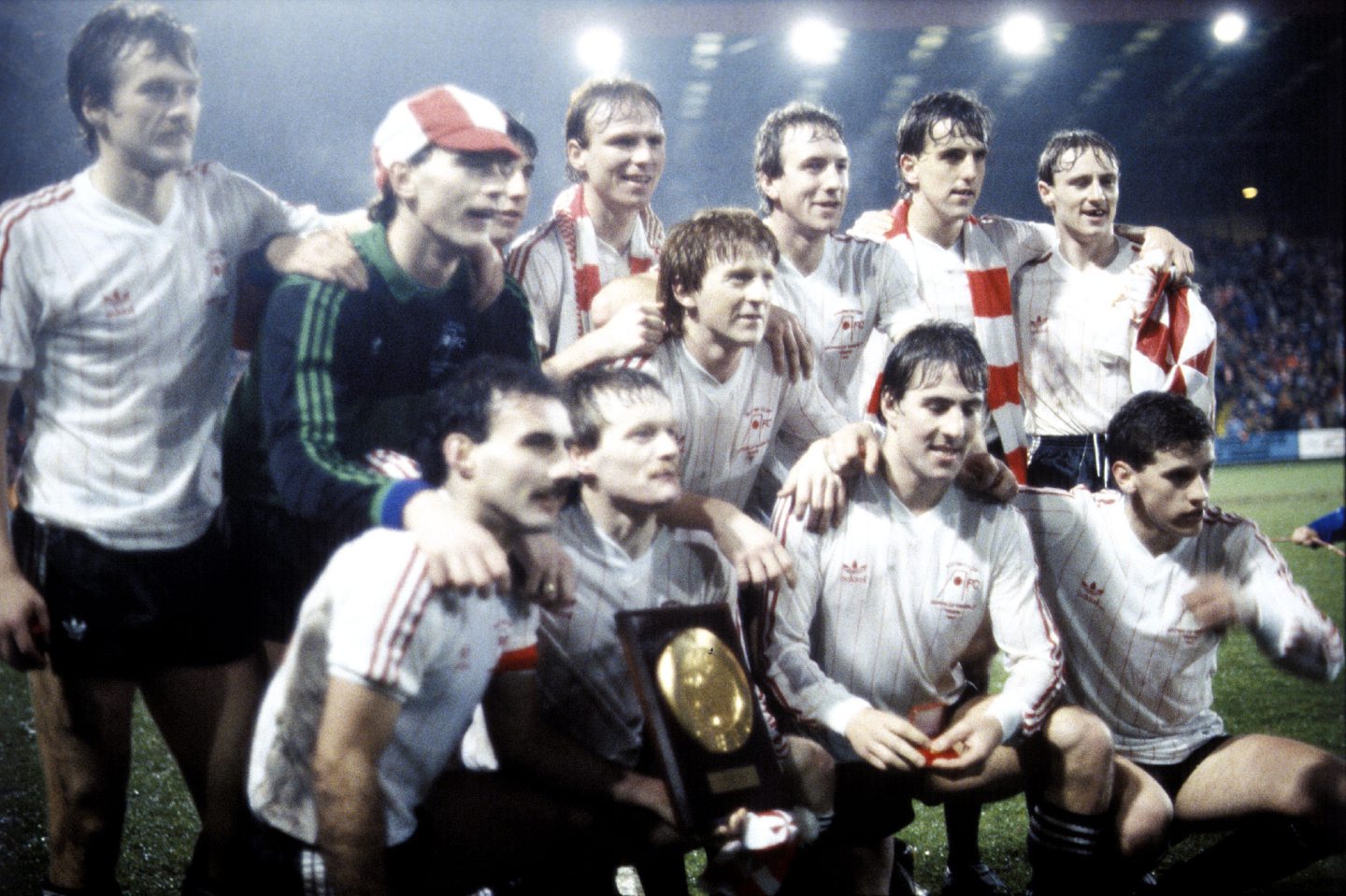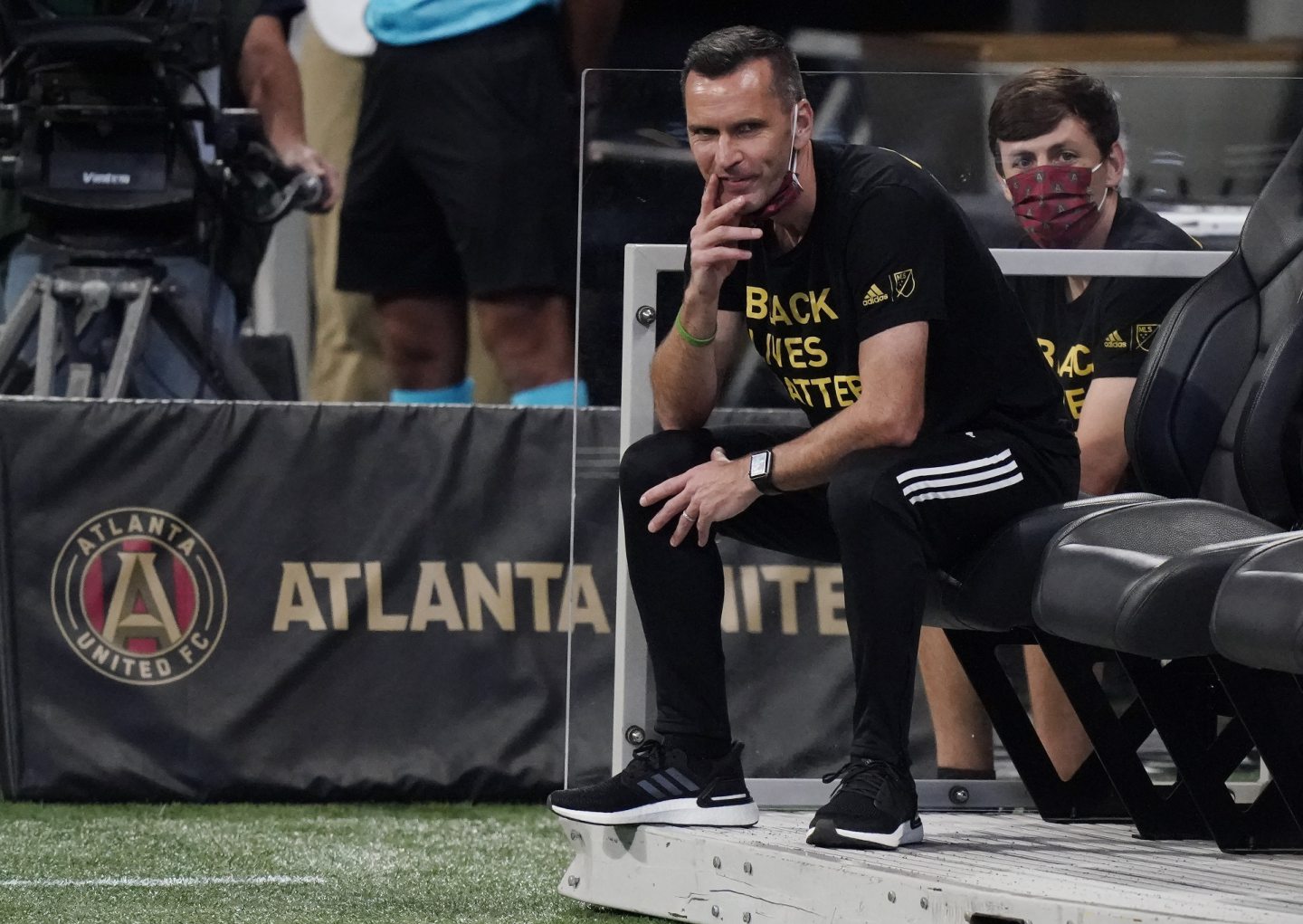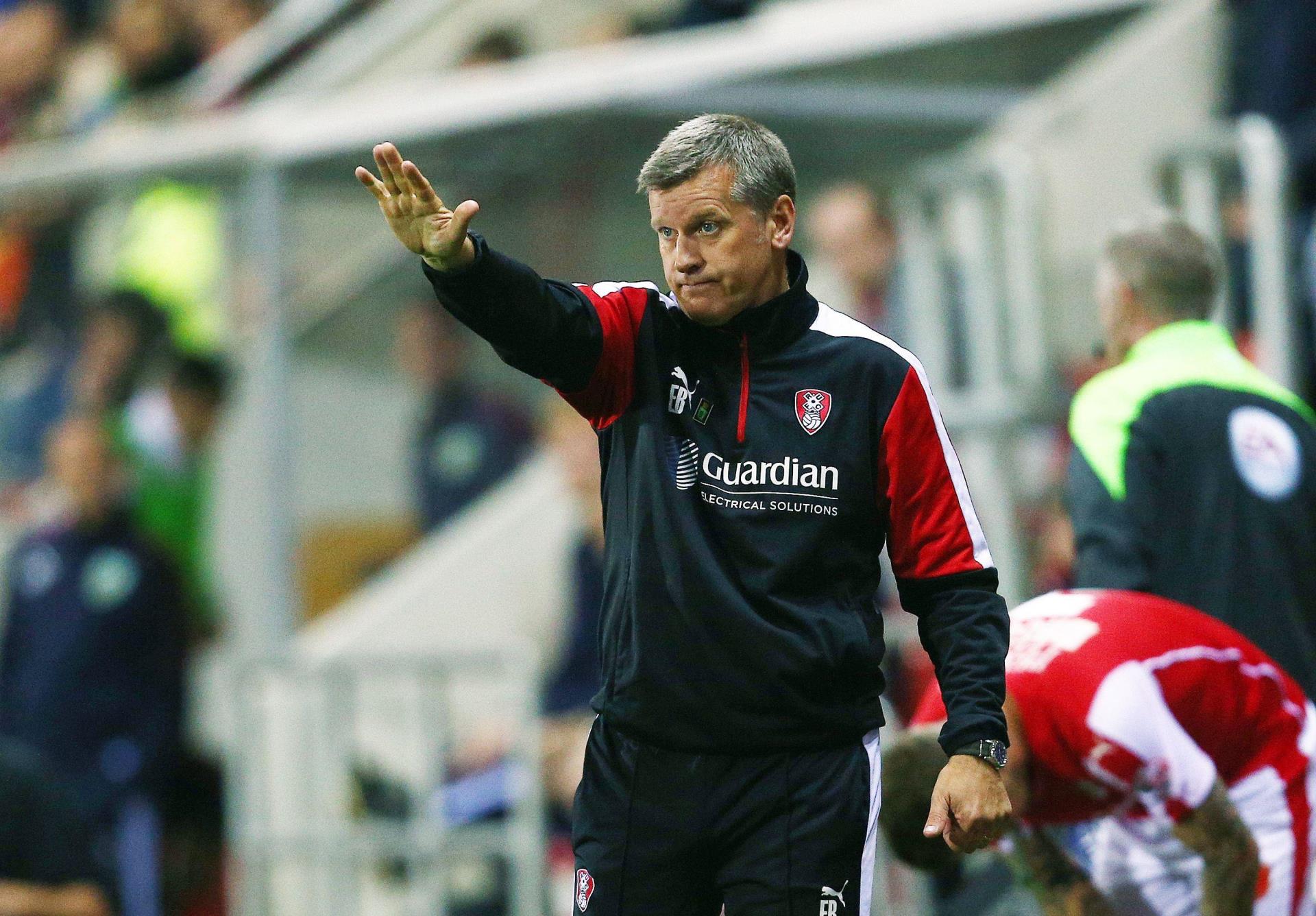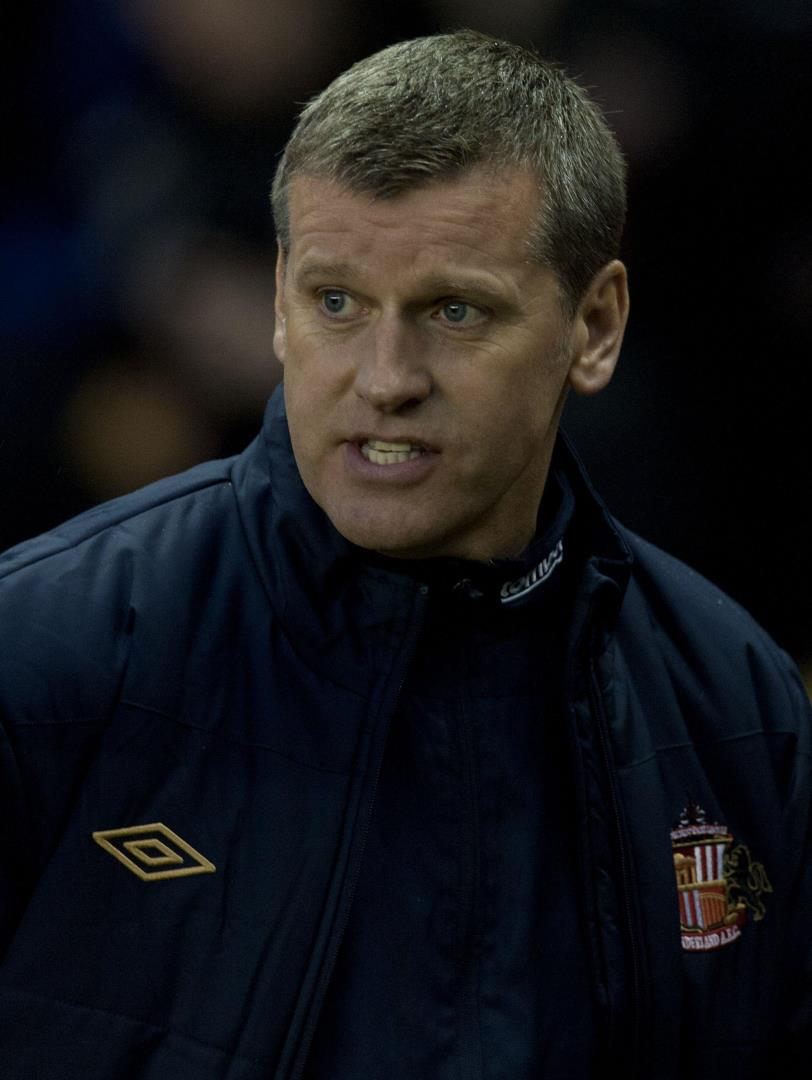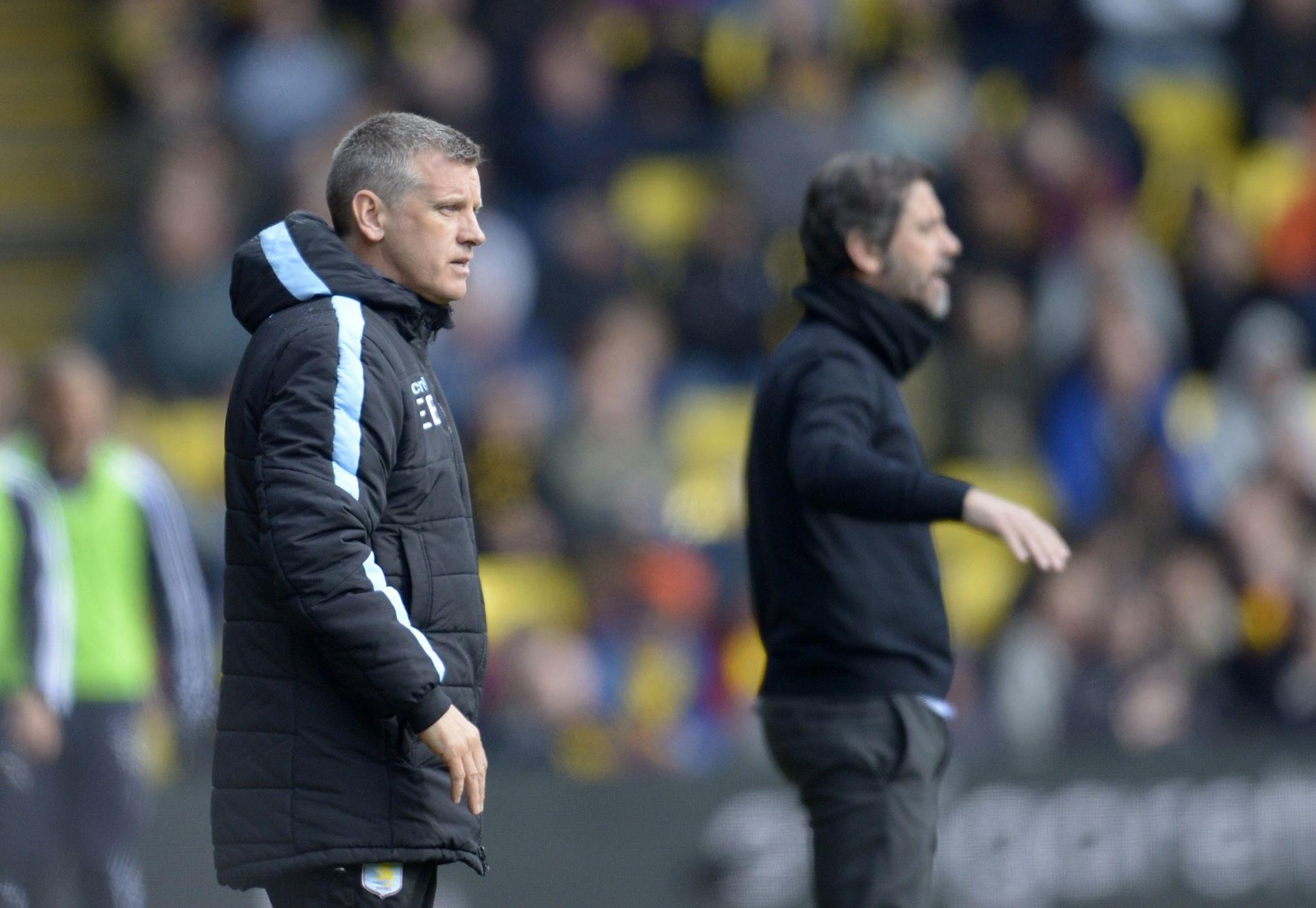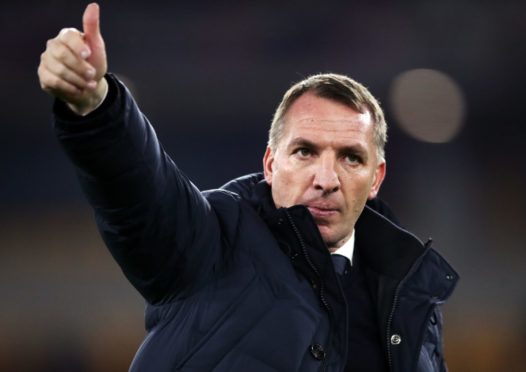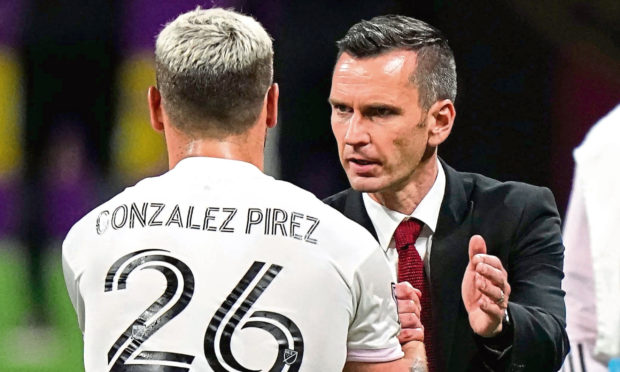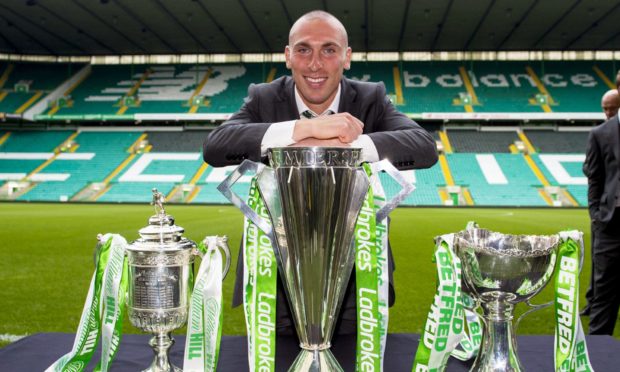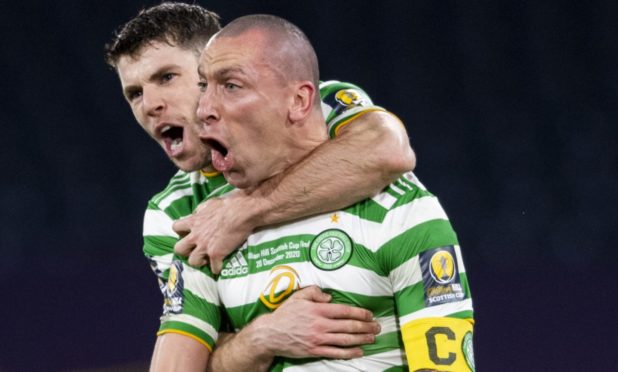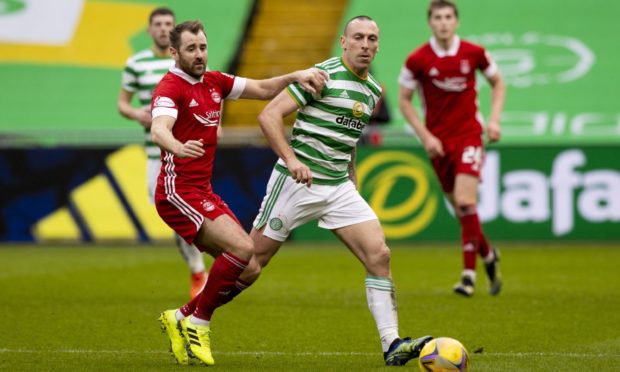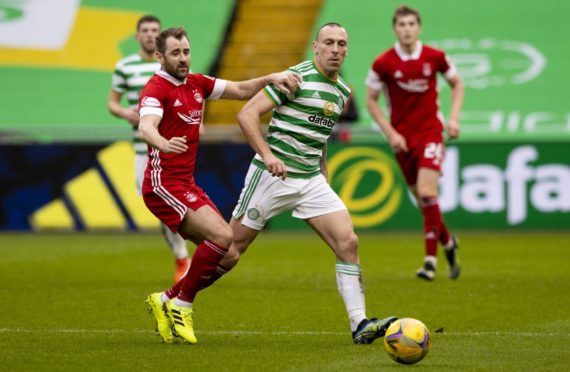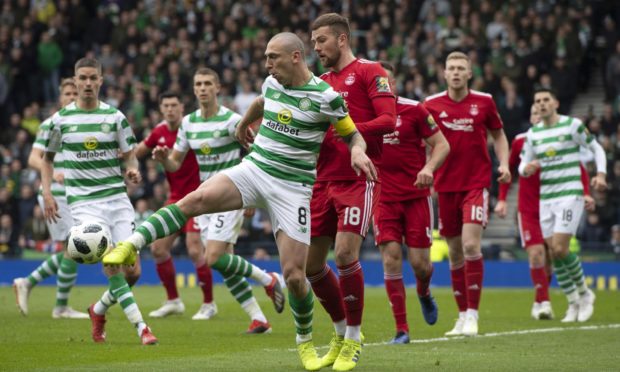Gothenburg Great Eric Black has backed Aberdeen’s interim management team to put their stamp on the side.
Coaches Paul Sheerin and Barry Robson, aided by Black’s former 1980s team-mate Neil Simpson, will step out from behind the scenes this weekend to take charge of the fourth-placed Dons against Dundee United at Tannadice.
Boss Derek McInnes and assistant Tony Docherty left the club last week after close to eight years, following a poor run of results and dismal return in front of goal.
Sheerin has said they won’t be making “wholesale changes” to Aberdeen’s approach, but says the Dons “will continue to strive to be better and break this duck and start scoring goals.”
Black, 57, who served as caretaker at five English clubs during his coaching career, thinks there will be “without doubt” changes Sheerin, Robson and Simpson want to make after their time in the background.
He said: “Ultimately it’s you who’s taking responsibility for the team.
“That doesn’t mean to say you make wholesale changes, because I don’t think it’s possible either.
“You’d maybe maintain 90% of the balance of the team.
“But we don’t know when Aberdeen are going to appoint somebody – this could be running for several games.
“They (Sheerin, Robson and Simpson) have to look at it in the way they see the team.
“An assistant manager and manager, I certainly remember, argue constantly about who was going to play and what system we were going to play and everything else. But once the manager picks his team that’s what you go with.
“They are now in that position. Although there’s three of them, it’ll take a bit of discussion to decide what way they’re going to go, it’s their responsibility now.
“I can’t imagine they are going to make six or seven changes, but there may alterations they feel could influence results.”
Black knows the ability of the temporary trio to rip up the blueprint in terms of personnel and tactics is limited, because chairman Dave Cormack and the Aberdeen board may only wait a few days or hold off a few months to bring in a new manager.
However, the former striker, who won eight trophies in 180 Dons appearances, has no doubt his old friend, ex-midfielder, club legend and youth academy chief Simpson, will ensure, alongside Sheerin and Robson, the players’ attitude is correct for the games they are in charge.
Black said: “I wouldn’t say the attitude at Aberdeen wasn’t right prior, latterly it was scoring goals that was the problem.
“But when you take over responsibility of a group of players, without doubt it reflects you as an individual.
“I know the people involved, Simmy a lot better than Paul and Barry, and I know they’re all winners. I certainly know Neil, whose Aberdeen through and through, will want to make sure the attitude’s correct, they apply themselves and everyone’s committed. All those adjectives which are related to playing for a manager.
“They know the boys pretty well, and they (the players) will have a lot of respect for them.
“Potential managers who might be coming in will be watching the game or getting their hands on a video link or something, so you have to show you want to be part of things going forward and it’ll become apparent quickly if you don’t.”
Black hailed fellow golden generation star Simmy’s “experience, knowledge and the way he can build relationships” to get the “buy-in” of players as the root of his strength as a coach.
Despite several names – Stephen Glass chief among them – being linked to the permanent hotseat at Pittodrie, the final six Premiership games, as well as the Scottish Cup campaign, also represent a chance for Sheerin and Robson to show their managerial mettle.
In Black’s experience, the pair, who helped with the first team under McInnes while also managing the the under-21s and 18s, will have already been informed by Cormack if they have a chance of landing the role full-time.
He explained: “It becomes pretty clear once the manager’s gone. If that was the case, and I don’t know if it is the case, I think the chairman would’ve at least given them a semi-heads-up on that.
“The previous times I did it, it was to give them a bit of time by staying on.”
The Dons legend, who believes McInnes and Docherty did a “great job” in their long spell, expects the successful candidate or candidates to share the “same vision” chief Cormack has for the club going forward.
He says “there’ll be an anticipation again in the city someone can come in with new ideas and take it forward”.
Black thinks it’s far better for Sheerin, Robson and Simpson they have taken charge of a team which is still gunning for third in the division and silverware this term, as all of his experiences, short and long, as an interim boss came at teams at the bottom of their leagues.
He said: “It’s better without doubt, because you very rarely take a team that’s flying high, usually they are in a relegation battle or struggling or they’re x amount of games without a win.
“But there’s still plenty to play for and I’m pretty sure, knowing the individuals who are there, they’ll want to ensure they finish the season or the period before the new manager comes in with a bit of a flourish – slightly more goals and a few results.”
‘They were never joyous experiences’
Dons legend Black opened up on the strange experience faced by those who take charge on an interim basis following managerial exits.
Black retired from playing due to a back injury at the age of 27 after five years in France with Metz, before later landing jobs in management with Motherwell and Coventry City.
Later in his coaching career, he served as Steve Bruce’s assistant, which led to caretaker spells at both Birmingham City, in 2007, and Sunderland, in 2009, after Bruce’s departure from both those clubs.
He would then go from Steve Kean’s assistant to caretaker at Championship Blackburn Rovers in 2012, managing six games, before filling in at Rotherham United after Steve Evans’ left in 2015.
In 2016, Black was in charge of Premier League strugglers Aston Villa for seven games after Remi Garde was sacked.
Reflecting on his five caretaker spells, Black said: “To be honest, they were never joyous experiences, I’ve got to be honest.
“When I took over at Sunderland after Steve had left, I took one game at Wolverhampton before Martin O’Neill was taking over.
“I remember them coming in a half-time. John Robertson, Martin O’Neill and Steve Walford came into the dressing room and stood at the back of the dressing room.
“So you’re put under that kind of pressure to do the team talk and whatever you do in front of the incoming manager. It can be a good thing, but sometimes it’s a bit difficult.
“At Birmingham, it was only one game.
“I had six games at Blackburn when Steve Kean left, where we drew three, won two and lost one, but there was so much disruption at the club at that time I was never going to be taking the job.
“It was dragged out, dragged out and dragged out because of the inefficiency of the board and director of football, who were struggling at that time, but I’d agreed I’d take the team until somebody was in place, which I though was going to be a game or two.
“I said I’d do it, so I committed to it and saw it through.
“It was the same at Villa – I had seven games there and knew I wasn’t getting the job there either. The whole club went into disarray at that point and there were people leaving left, right and centre.
“Ultimately it was me and Tommy Jordan (Villa’s media chief) who were running the club.
“There was no director of football, the chairman and chief executive had left, so it was a difficult position that one without doubt – and we were in the Premier League with a struggling team.”
